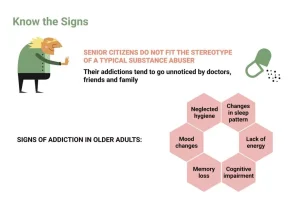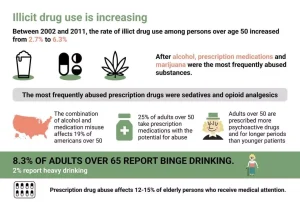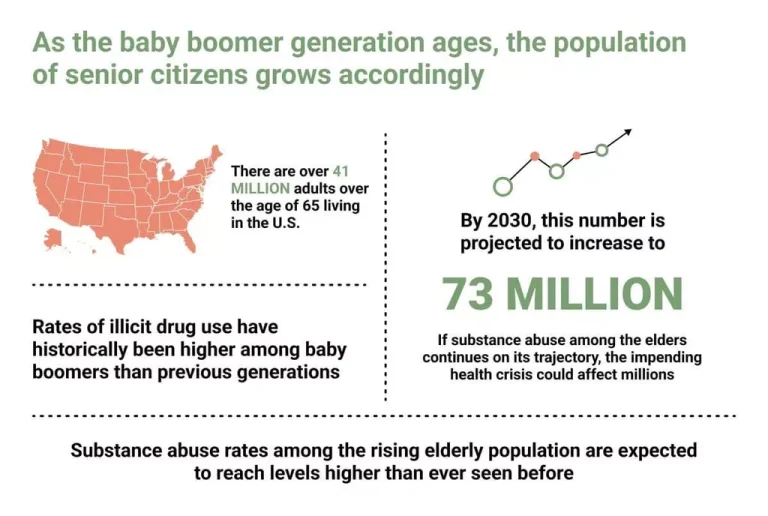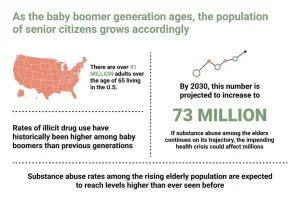
Remember, your recovery journey is unique, and it’s okay to prioritize your well-being over societal expectations or traditions. The holiday season can be a joyful time of year filled with celebrations and reconnections with friends and family. However, for those in addiction recovery, the season can also present unique challenges.
Strategies and Coping Skills for Staying Sober
Leaving harmful past relationships and forming healthy, supportive relationships always pays dividends. Working too hard or overexerting yourself in other ways can be detrimental to your mental health. You may actually find that if you take it a bit easier that you will be work effective at what you are doing.
Alternative Activities and Celebrations
Regardless of a good or bad day, check in with your mind and body, how hard the day was, what some triggers you noticed were, and how you avoided them or lessened them. This is an integral part of the recovery process so that you constantly prepare yourself for more challenging days. Getting sober is a sprint, staying sober is like running a marathon without a finish line. On the plus side, you =https://ecosoberhouse.com/ have people cheering you on and giving you support at various checkpoints.

Breaking Down Alcoholism: Am I an Alcoholic?
People with mental illness experience great benefits from being charitable. Random acts of kindness have several positive benefits, including increased feelings of self-worth and reduced anxiety and depression. For example, taking a hot bath with bubbles or salts is a form of my self-care.
- Avoiding these situations isn’t a sign of weakness; it demonstrates strength and a commitment to sobriety.
- It also gives you a sense of purpose that can help you stay focused.
- After three weeks without drinking, the body has already started to heal.
- In addition, the new sober you must identify triggers, recognize warning signs, and acknowledge your sober friends and support network.
Proven Methods on How to Stop Alcohol Addiction

Ultimately, it’s important to remember that relapses happen to almost everyone. In fact, some research estimates that up to 80 percent of people seeking long-term sobriety have at least one relapse. The challenge of staying sober varies in intensity from person to person. For many people, staying sober is impossible without professional medical support.

If you find it difficult to make new, sober friends, try joining a support group. For those who choose to stay sober—whether for personal, health, or recovery-related reasons—the festive season can bring unique challenges. While the end-of-year celebrations often centre around alcohol, navigating them without drinking is entirely possible and can be rewarding. Here’s a guide to help you or a loved one enjoy a sober season, feel supported, and cope with any social pressures. Understanding these triggers is essential to managing and preventing addiction. The professionals at Resurgence can help you identify substance abuse triggers to avoid a relapse from drinking, create coping strategies, and develop healthier habits.
- Hanging out with your cheer squad—family and friends who really get what you’re going through—can be a game changer.
- If you’re struggling with staying sober or find yourself slipping back into negative habits, don’t hesitate to reach out for help.
- Until you’re at a better place in your recovery, avoid going to events where you know drinking will be a big part of them.
- With the COVID-19 pandemic and increasing rates of anxiety, depression, and other mental health issues, many people have turned to substance use to self-treat.
- When you accomplish a fitness goal, you show yourself that you can do things that are hard.
- First, you must forgive yourself for what you did in your substance abuse days.
- Getting sober is when someone stops using an intoxicating substance.
- One thing to note is isolation is one of the enemies of sobriety.
- Effective stress management techniques are essential for individuals in recovery.
Think about going to counseling or family therapy to help with that and to deal with other personal issues. Depression, anxiety, and other mental health issues also tend to worsen just before a relapse. This may also manifest as insomnia, loss of desire, changes in eating habits, or a loss of daily structure. Opioid overdoses often involve a loss of consciousness, breathing difficulties, choking, or an inability to respond to stimuli.

Mind-body relaxation plays a crucial role in reducing the use of drugs and alcohol, thereby preventing relapse in the long term. These strategies, when integrated into a comprehensive recovery plan, can serve as pillars of strength and stability on the journey towards a healthier and fulfilling life. For individuals on the path to recovery, implementing effective sobriety strategies is crucial for maintaining long-term sobriety. Building a strong support network and engaging in meaningful activities are key components of a successful recovery journey. Social media projects a false narrative and is damaging to your mental health.
Sobriety Halfway house fatigue can vary from person to person but typically lasts around a month before newfound energy levels, routines, and therapeutic practices are in place. Sobriety isn’t accomplished all at once, and reaching new checkpoints, setting new goals, and seeing success in motion are all part of the transformative process. Addiction can fundamentally affect your brain chemistry and perceptions, and being sober prompts a “rewiring” of many of these neural pathways. There are some general things you can expect to happen. The following tips are all ways you can help yourself reach your goals.
- To inflame the issue, financial worries and issues holding down a job are triggers for relapse.
- Perhaps you introduced self-care routines into your life for the first time when you decided to get sober.
- A sober friend can be invaluable when you are thinking about drinking.
- Abstinence is your greatest chance of avoiding relapse.
- Some people may find that wearable devices and smartphone apps can support their recovery from alcohol use disorder.
- However, of that 29 million, 20.9 million Americans report that they are in recovery.
By questioning your relationship with alcohol, you open doors to better health, clearer thinking, and more fulfilling social experiences. Long-term alcohol use can have more severe and lasting impacts on cognitive function. In the short term, alcohol can impair judgment, reaction time, and memory formation. These effects are usually temporary but can have serious consequences, especially in situations requiring focus and quick decision-making. When you drink tips to stay sober alcohol before bed, you may fall asleep faster, but the quality of your sleep suffers. Alcohol reduces the amount of time spent in rapid eye movement (REM) sleep, a crucial stage for cognitive function and emotional regulation.
